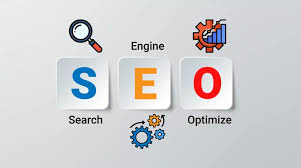
The Ultimate Guide to SEO in Digital Marketing: Tips and Tricks
Understanding the Basics of SEO: What You Need to Know
Search Engine Optimization (SEO) is the process of enhancing a website's visibility on search engines such as Google. Understanding SEO is essential for digital marketers, as it helps drive organic traffic, improve rankings, and increase brand awareness. Keywords, search intent, and user experience are the foundational elements of effective SEO.
Moreover, SEO is not just about inserting relevant keywords; it involves a comprehensive strategy that includes technical SEO, on-page optimization, and off-page tactics. By grasping these basics, you can begin to develop a successful SEO strategy that aligns with your business goals.
Key Components of On-Page SEO for Better Rankings
On-page SEO refers to the optimization strategies applied directly on your website to improve its position in search rankings. Key components include optimizing title tags, meta descriptions, header tags, and URL structures to ensure they are relevant to the content. Additionally, utilizing keyword-rich content and maintaining a good internal linking structure can enhance user experience and dwell time.
Furthermore, image optimization, mobile-friendliness, and ensuring fast loading times are critical on-page factors that search engines consider. By focusing on these components, you can significantly improve your website's chances of ranking higher in search results.
Off-Page SEO Strategies to Boost Your Website Authority
Off-page SEO encompasses all the activities conducted outside of your website that affect your rankings. This includes link building, social media engagement, and influencer outreach. Building high-quality backlinks from authoritative sites is one of the most effective off-page strategies for enhancing your site's credibility and authority.
Additionally, engaging with your audience on social platforms can drive traffic back to your site and improve brand recognition. By implementing these off-page strategies, you can create a more robust online presence that supports your overall SEO goals.
